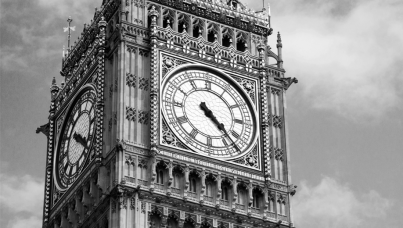The public prioritise access to primary and community care over hospital care
The Health Foundation has partnered with Ipsos to deliver a programme of public polling research examining expectations and perceptions of health and social care. Every 6 months, we poll a representative sample of the UK public using the UK KnowledgePanel – Ipsos’ random probability online panel. In 2023, the Health Foundation and Ipsos also undertook deliberative research with the public in England about the future of the NHS. The Health Foundation briefing on the deliberation can be downloaded here.
The findings from the fifth survey (with fieldwork in November 2023) show:
- The majority of the public continue to agree that the NHS’s founding principles should still apply today. However, looking ahead, although the public think these principles should still apply, they are less likely to think they will still apply in five years’ time.
- Views of the standard of care in the NHS over the past 12 months are better than this time last year, though still 53% of the public think standards have got worse (versus 66% in May 2023).
- However, looking ahead optimism has remained relatively stable, with 53% thinking the standard of care in the NHS will get worse over the next year (54% in the previous wave). Still only 11% think it will get better.
- Views of the service the NHS is providing nationally and government policies for the NHS are fairly stable. However, locally 44% agree that their NHS is providing them with a good service - up from 39% in May 2022.
- The public's favoured option on funding is to increase taxes in order to maintain the level of spending needed to keep the current level of care and services provided by the NHS (48%). Only a small proportion want to see reduced spending on other services to maintain NHS services (11%) or reduced level of care and services provided by the NHS (9%).
- If funding for the NHS isn’t increased, three in five would like the government to prioritise access to community-based services such as GPs and NHS dentists (60%). However, 30% would prefer to see access to hospital care (i.e., A&E and planned procedures) prioritised.
- Keeping their homes a comfortable temperature is the top activity people report doing less as a result of the cost-of-living crisis (66% say they do this less).
- Seven in ten of the public (70%) feel the government has a responsibility to reduce harm from smoking and the majority also support the government raising the legal age to buy cigarettes by one year, every year, until no one in future generations is legally allowed to buy such products (69%).
- More than three-quarters of the public think social care workers are paid too little (77%). The most popular action to increase pay for social care workers is to have stronger enforcement of the national living wage for all UK social care workers (89% support this action) and the least popular action is to give social care workers bonus payments (65% support this action).
Almost three-quarters of the public think that the current social care means-tested system in England is unfair (74%). The most popular option for funding social care is a system like the NHS where a wide range of social care services are free at the point of use for all those who need them (73% think this is a fair system), closely followed by a system where everyone is entitled to some basic social care services regardless of their assets (i.e. not means-tested) but the individual may have to pay for a wider range of care and support, which is means-tested (70% think this is a fair system).
Access the findings here.
Technical note
The survey was conducted between 23 and 29 November 2023 using Ipsos's UK KnowledgePanel, a random probability online panel. We surveyed 2,301 people aged 16 years and older in the UK. The sample was reviewed on key demographics to ensure a balanced sample was selected. Weighting was applied to the data to ensure the survey results are as representative of the UK population as possible. Calibration weighting was applied to region and an interlocked variable of Gender by Age; and demographic weights were applied to Education, Ethnicity, Index of Multiple Deprivation (quintiles), and number of adults in the household. A response rate of 54% was achieved.
The survey covers a range of public perceptions including: expectations and perceptions of the NHS and social care; views on private healthcare; perceptions of funding for the NHS; general views of social care and funding models for social care; views on the cost of living crisis; and views on government interventions in the area of public health.


